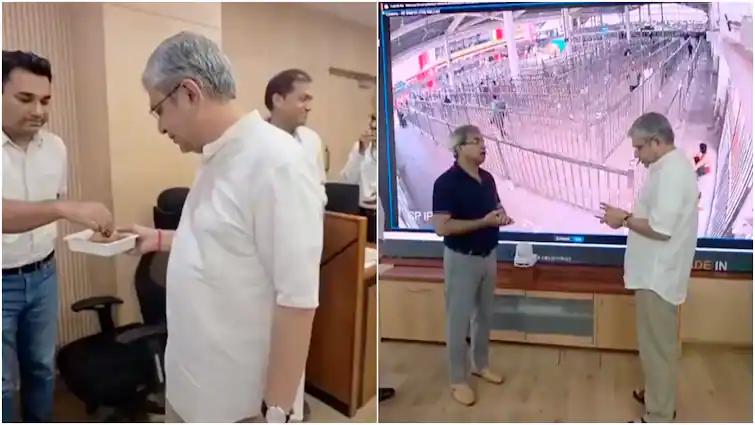Copyright Lewiston Morning Tribune

Seven candidates are running for the Lewiston City Council in the Nov. 4 election, where the top three vote-getters will each win four-year terms. The incumbents are Kassee Forsmann and Matthew Wright. They face challengers Andrea Ackerland, Bob Blakey, Linda Glines, Brennan Leafty and Bryan Moree. The Tribune asked all of the candidates the same questions by email. This is the first installment of two stories with their edited responses. Today’s story includes the answers from Ackerland, Blakey, Forsmann and Glines. The second installment on Friday will have the answers of Leafty, Moree and Wright. Lewiston Tribune: What is the reason you’re running for city council? Andrea Ackerland: It’s time for Lewiston residents to be heard. I have the skills to bring real solutions to our community’s needs. Further, our budget needs reined in and we need somebody who will cut it where it makes sense, and creatively find solutions. Bob Blakey: I’ve heard new councilors say that the first two years on council is like drinking water out of a fire hose. I’m out of school and ready to go to work (on) day one. Lewiston is a great place to live. I look forward to improving it over the next four years. The past accomplishments of the council speak for themselves. Kassee Forsmann: I’m running for reelection to continue building a stronger, more vibrant Lewiston. Over the past term, I’ve worked hard to support responsible economic growth, improve our infrastructure, and make our community more affordable for families and businesses alike. I’m committed to streamlining development and permitting processes to attract new businesses and create good jobs — while maintaining the hometown character that makes Lewiston such a special place to live. Linda Glines: The circumstances that affected my decision to run for council started with being asked to help neighbors navigate a conditional use permit for a tiny housing project in our neighborhood. … I handled the review of the ordinances, processes, paperwork for reviews and appeals for the neighborhood. At that time, I realized how hard it is for an average person to navigate all the legal requirements just to be heard by the city. … The majority of the residents, me included, are not opposed to the concept and need for the housing project. We were concerned about the location selected, what changes were going to happen in the neighborhood with this project and assurances about our concerns. From this, I started getting questions to see if I could research answers for other concerns. … I wanted to help and the best way I could provide that help was to run for a seat on city council. … We need businesses and the home affordability to keep people wanting to live here, whether it be to raise a family or retire. I want to be part of the process to make this happen. LT: Do you support the $22.5 million bond on the ballot in November to pay for downtown infrastructure? Why or why not? If you don’t support it, how do you think the city should pay for the project or what is the reason you believe the project isn’t needed? Ackerland: While I do think our infrastructure needs (to be) addressed, I don’t believe we need more money to do a job that we have the money for. I understand that sometimes projects take more than expected. However, many of the residents feel like it will just become an open check book and won’t be spent wisely. Our community has already had some big financial hits in the last few years, and it really can’t handle anymore. Blakey: Yes. Nothing gets cheaper in the future. Our future is now. This bond issue will not (raise) our taxes Forsmann: Currently, the city has sufficient funds to make the scheduled bond payments, but not enough to cover the entire project cost upfront. Funding for this project would come from several different sources. Importantly, the city does not plan to raise taxes to make these bond payments. Existing funds will be used. The ballot language includes information on how much taxes would increase if the city were to raise them to cover the bond, but that is a state requirement for transparency and does not reflect the city’s actual plan. If the bond is not approved, the existing pipes will eventually fail, forcing us to make frequent and costly patch repairs. This approach would be far more expensive over time and would cause repeated disruptions for Main Street businesses. Without the bond, we would have to tear up the road multiple times instead of completing the work all at once — creating ongoing inconvenience for both residents and business owners. Glines: I do support the bond on the ballot. We need this done now. The longer we wait, the more it is going to cost later. LT: The city has a strong mayor form of government. Do you support the city hiring a city administrator to help the mayor? Why or why not? Ackerland: I can’t say that I know enough internally to accurately answer this. However, I do believe the government seemed to be more on track before we went to a strong mayor form of government. If we did hire an administrator, where are the funds going to come from? Because we have a need to reduce our spending. I may be on board if we reduced the mayor’s salary to match the higher-end average for what our residents make in Lewiston. Blakey: First, I did not support the change in government. We had a number of qualified city managers. Mayor (Dan) Johnson is doing two jobs by choice. Yes, we need a city administrator, but they should be appointed by the council and have a contract. This protects the person from the whims of the next mayor and assures continuity. Forsmann: I would support hiring a city administrator to allow the mayor to focus on broader strategic goals and public engagement, while the administrator manages the day-to-day operations. This structure is common in many cities and has proven effective in improving efficiency and accountability. It also provides the mayor with greater flexibility to represent our community at the regional and state levels. … The mayor should be able to travel to Boise to advocate for our city, share our challenges, and ensure legislation does not negatively impact us. Currently, when the mayor is away, those responsibilities fall to staff who already have full workloads. A qualified city administrator would provide consistent leadership, maintain operations and ensure our city continues to move forward even in the mayor’s absence. Glines: If the job responsibilities require the need for a city administrator to assist the mayor, I do support it. Williams may be contacted at ewilliam@lmtribune.com or (208) 848-2261.



